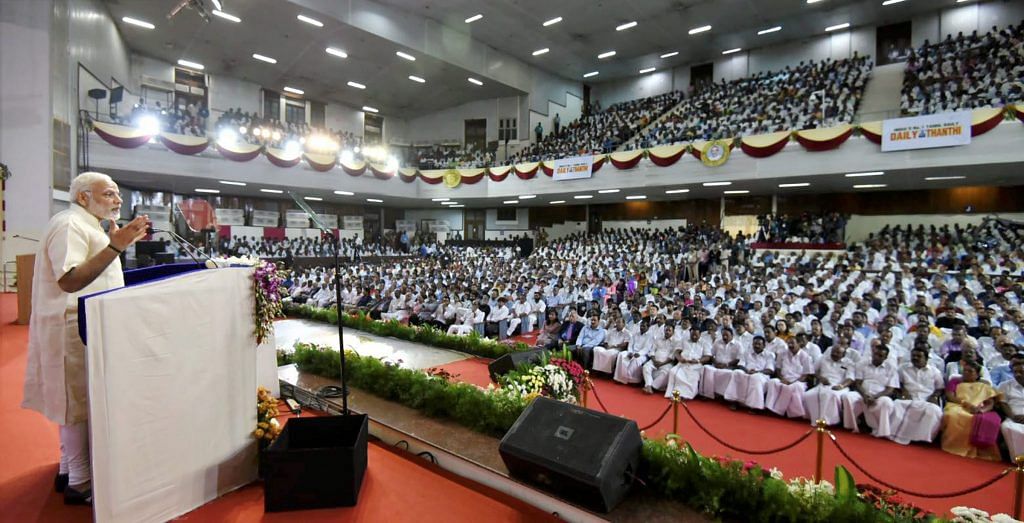Prime Minister Narendra Modi has said that the freedom to write, and to decide what is to be written, does not include the freedom to be “less than accurate”, or “factually incorrect.” Quoting Mahatma Gandhi, he added: “The press is called the Fourth Estate. It is definitely a power, but to misuse that power is criminal.”
Question: Is PM Modi’s statement on press freedom a veiled warning to dissenting media voices?
It is not a veiled warning; it is a statement that anyone who values a free, vibrant, and credible media would agree with.
NDA MP
The PM’s statement is not a veiled warning; it is a statement that anyone who values a free, vibrant, and credible media would agree with.
To repeat what most of us know, the media in a democracy has a very important role — to inform, to question and challenge those in politics and business, on behalf of its citizens. It has to bear this responsibility premised on facts and information, instead of personal likes, dislikes, or ideological differences.
Whether it’s a “threat” or not depends on what the media considers its job to be – to toe the line, or to ask questions
Senior Resident Fellow at Vidhi Centre for Legal Policy
Freedom of speech, as guaranteed in the Constitution, is deemed to be in public interest. The burden rests on the government to show why, in a given case or set of cases, what is written or said in the media is not in public interest.
Frankly, it isn’t the government’s business what the editorials of a newspaper are talking about. Freedom of speech means that newspapers are free to set their own agenda, and what they think is public interest. They don’t have to meet arbitrary notions of public interest peddled by the government.
Regulation of the media should come from the media itself
Congress MP and Chairman, AICC Research Department.
The freedom of the press is sacrosanct and central to a healthy democracy. But regulation of the media should come from the media itself, and governments and courts should exercise restraint. Laws such as criminal defamation and sedition are draconian and have no place in a democracy.
Prime Minister Modi’s statement certainly sounds like a veiled warning. But it seems unnecessary, given how some corporate-owned media houses have indulged in self-censorship on news critical of the ruling party. Many media houses have practically become government PR agencies, instead of fulfilling their function of holding the government accountable.
The political executive has always had an uneasy relationship with the press
Lawyer
The political executive has always had an uneasy relationship with the press – on the one hand, extolling its virtue and importance, and on the other, finding ways to curb its freedom.
This history goes back to the colonial period, from the early 1820s, British rulers imposed various onerous restrictions upon the press, and especially upon the vernacular press. These restrictions ranged from pre-publication deposits, to laws such as the Press (Emergency Powers) Act, under which presses could be confiscated, fines imposed, and editors and writers prosecuted.
Compiled by Deeksha Bhardwaj
